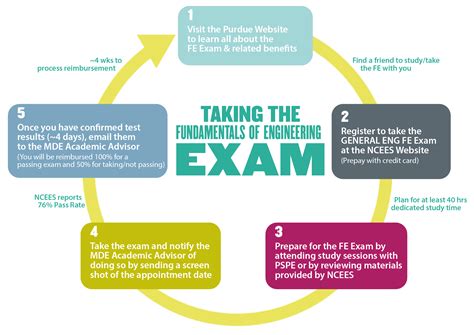FE Exam: How Well Does Your Practice Reflect the Real Thing?
The Fundamentals of Engineering (FE) exam is a significant hurdle for many aspiring engineers. Passing it is often the gateway to licensure and a crucial step in your career. But how accurately do practice exams prepare you for the real deal? This is a question many examinees grapple with, and the answer is nuanced. While practice is undeniably vital, its effectiveness hinges on several factors. This article delves into the critical aspects of FE exam preparation, comparing practice tests to the actual experience and offering strategies for maximizing your chances of success.
What Makes a Good FE Practice Exam?
A high-quality practice exam isn't just about the number of questions; it's about the quality and realism of those questions. Here's what to look for:
- Question Format and Difficulty: A good practice exam should mirror the actual FE exam's structure, question types (multiple-choice, mostly), and difficulty level. Look for exams that accurately reflect the breadth and depth of the topics covered in the FE exam specifications.
- Comprehensive Coverage: The practice exam should cover all the major disciplines within the FE exam, ensuring you get exposed to a variety of problem-solving scenarios. This means covering areas like mathematics, statics, dynamics, thermodynamics, and electrical circuits. No single subject should be over- or under-represented.
- Detailed Explanations: The value of a practice exam extends beyond just getting the right answer. Comprehensive explanations for each question are vital. These explanations should not only explain the correct answer but also clarify the underlying concepts and why the other options are incorrect. This is crucial for solidifying your understanding and identifying knowledge gaps.
- Realistic Time Constraints: Practice under timed conditions. The FE exam is notoriously time-constrained. Mimicking the exam's time pressure in your practice sessions is crucial for developing your time management skills.
- Variety of Question Styles: You should see questions that test not just recall, but also application and analysis of concepts. Some questions might require you to interpret data from graphs or tables.
How Closely Do Practice Exams Mimic the Real FE Exam?
While practice exams strive for realism, there will always be some differences. No practice exam can perfectly replicate the experience of sitting for the actual FE exam due to factors like:
- Test-Taking Anxiety: The pressure of the actual exam environment is difficult to fully simulate. Practice exams can help reduce anxiety to some extent, but the real thing inevitably carries a different level of stress.
- Unexpected Question Types: While most practice exams will cover a wide range of topics, you might encounter a question or two on the real exam that feels slightly different or touches on a less frequently tested area.
- Individual Question Difficulty: The difficulty of individual questions can vary slightly from exam to exam.
How Many Practice Exams Should I Take?
There's no magic number, but aiming for at least 2-3 full-length practice exams is a good starting point. The more practice exams you complete, the more comfortable you'll become with the format, question types, and time constraints. However, don't just focus on quantity; ensure you thoroughly review your mistakes and understand the underlying concepts after each practice exam.
What to Do After Taking a Practice Exam?
Don't just look at the correct answers; actively analyze your mistakes. Ask yourself:
- Where did I go wrong? Identify specific concepts or areas where you struggled.
- What resources can I use to improve? Consult textbooks, online resources, or study partners to clarify any misunderstandings.
- How can I improve my time management? Review questions where you ran out of time and strategize on how to approach similar questions more efficiently.
Beyond Practice Exams: Other Crucial Aspects of Preparation
Preparing for the FE exam involves more than just completing practice tests. Other critical components include:
- Reviewing Fundamentals: Thoroughly review fundamental engineering concepts and principles. Don't just memorize formulas; ensure you understand the underlying concepts and their applications.
- Using Reference Materials: Familiarize yourself with the FE reference handbook. Knowing how to efficiently navigate and utilize this resource during the exam is essential.
- Managing Exam Day Stress: Practice relaxation techniques and develop a plan for managing exam-day stress. Adequate rest, nutrition, and hydration are crucial.
In conclusion, while practice exams are indispensable tools for FE exam preparation, they are not a perfect replica of the actual exam. Effective preparation requires a holistic approach, combining practice tests with a thorough review of fundamental concepts, strategic time management, and a plan for managing exam-day stress. By incorporating these strategies, you can significantly improve your chances of success.

